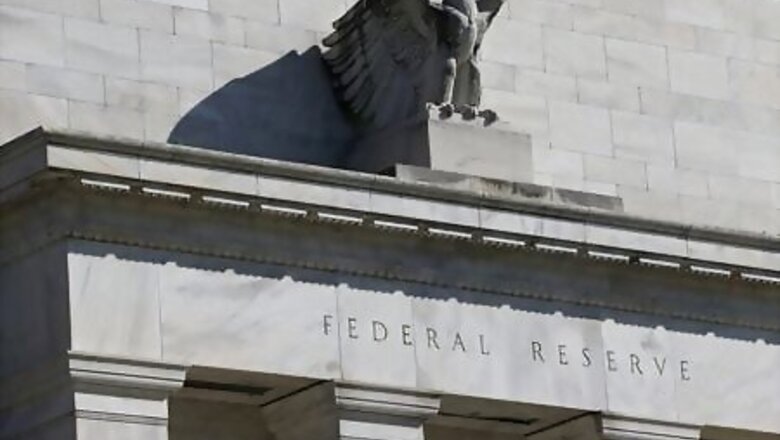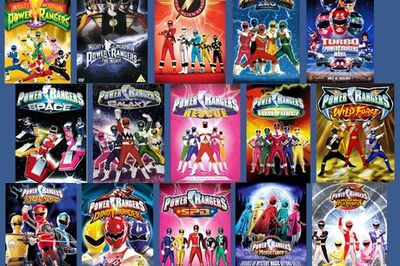
views
BENGALURU: The U.S. Federal Reserve’s latest policy shift will not have any significant impact on the economy, according to a majority of economists in a Reuters poll who do not expect the central bank to meet its dual mandate until 2023 at least.
In a landmark shift to a more tolerant stance on inflation, the Fed’s new monetary policy strategy pledged to address maximum employment by letting inflation run above its 2% target and suggested interest rates would stay near zero for years to come.
But the Sept. 8-10 poll showed the Fed’s preferred inflation gauge – the core Personal Consumption Expenditures (PCE) price index – was forecast to average 1.3% this year, 1.5% next and 1.7% in 2022, largely unchanged from the previous poll.
Over three-quarters of 47 economists responding to an additional question said the Fed’s change would not have any significant impact on the U.S. economy, which suffered its biggest fall since the Great Depression last quarter.
“While the Fed’s step to make the inflation target ‘more’ symmetric may benefit the wages of the average American somewhere beyond 2022, it could be argued the Fed’s policies have become part of the problem, instead of the solution,” said Philip Marey, senior U.S. strategist at Rabobank.
“The current crisis response has made it painfully clear again that the Fed’s policies contributed to a form of capitalism where the rewards benefit high income individuals and large corporations, while small businesses and low income individuals bear the burden.”
Despite unprecedented stimulus, recent data showed the labor market recovery was slowing as the COVID-19 pandemic persists and government money to support workers and employers dries up. But U.S. stock and government bond prices have skyrocketed.
While unemployment was forecast to fall gradually – averaging 8.6% this year, 7.3% next and 5.6% in 2022, that would still be well above the pre-COVID-19 rate of 3.5%.
A recent Fed report showed furloughed workers during the pandemic are increasingly being laid off permanently in some states. But economists with a view were mostly split on the risk of the job recovery reversing by end-2020.
“The U.S. is bouncing strongly off Q2 lows, but after an initial economic reopening we see modest growth and difficulties in absorbing unemployed labor,” Stephen Gallagher, chief U.S. economist at Societe Generale wrote in a research note.
“Fiscal policy stumbled in August with Congress failing to approve another stimulus package that would extend enhanced unemployment benefits and offer clarity on mortgage forbearance. These factors could slow the recovery more than expected in Q4, but we do not yet see much sign of such a slowdown.”
Despite a resurgence in coronavirus cases and after having contracted 31.7% last quarter, the U.S. economy was forecast to rebound and grow 25.0% this quarter and 5.3% next, on a seasonally adjusted annualized basis. For 2020, the economy was forecast to on average contract 4.9%.
That compared to 32.9% contraction in Q2, growth of 18.8% in Q3 and 6.1% in Q4 predicted last month, and a 5.3% contraction for the full year predicted previously.
While the consensus under a worst-case scenario showed some optimism compared to last month, the outlook and the range of expectations under any scenario for next year pointed to less optimistic views, underscoring the lack of confidence in forecasting a significant recovery.
“Uncertainties over the timing and efficacy of a vaccine coupled with the threat of a renewed spike in COVID-19 cases in the latter part of the year mean the strains facing the travel, hospitality and entertainment industries will continue,” said James Knightley, chief international economist at ING.
“Given these sectors are relatively large in the U.S. this adds to our wariness on getting too excited about the speed of recovery.”
Asked which presidential candidate’s policies would generate the best U.S. economic outcome in the long run, 27 of 39 respondents chose Democrat Joe Biden over incumbent Republican President Donald Trump.
“Income and wealth inequality is extreme and causing economic and political instability. Biden’s policies will better address these issues. Policy uncertainty will be reduced, making it easier to plan and do business,” said Scott Anderson, chief economist at Bank of the West.
Disclaimer: This post has been auto-published from an agency feed without any modifications to the text and has not been reviewed by an editor




















Comments
0 comment